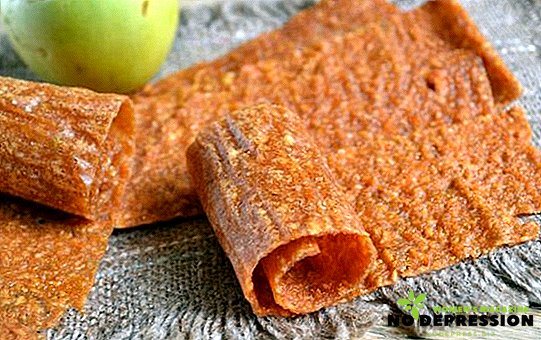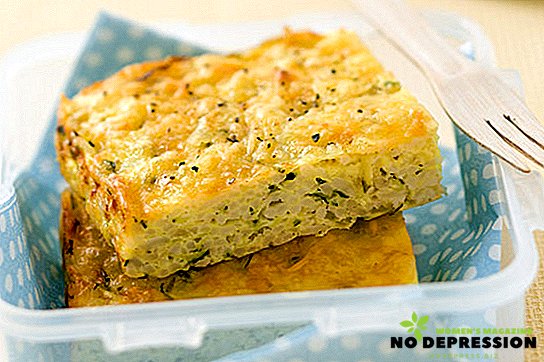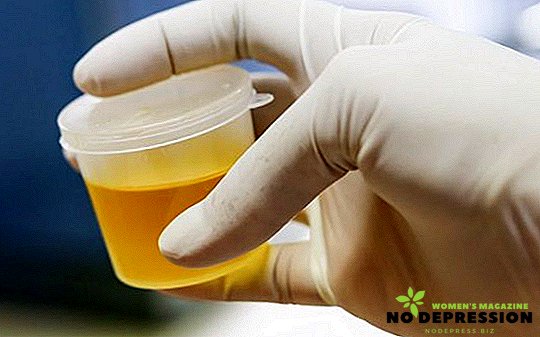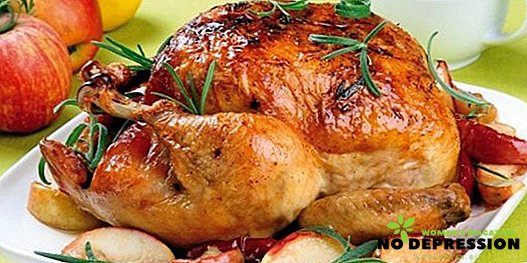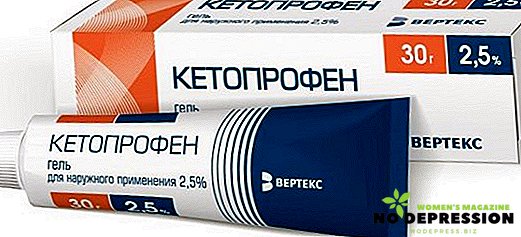An ulcer is a defect on the inner (mucous) surface of the stomach, which has clear outlines and localization. This is one of the most common diseases, according to statistics, more than 15 percent of the inhabitants of the earth have a diagnosis of gastric ulcer.
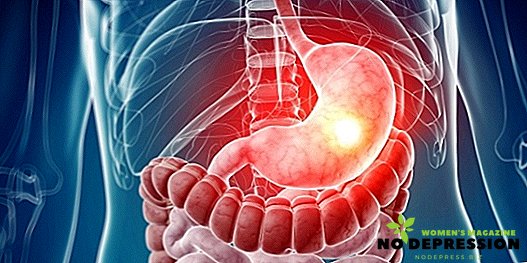
But the majority do not even pay attention to the beginning of the disease, and only a few people think about how to prevent the appearance of an ulcer. It is important to know that the main symptom of ulcers is stomach pains, which modern medicine successfully treats.
The mechanism and causes of gastric ulcer in adults
One of the main causes of ulcers - the impact of hydrochloric acid and bile on the mucous wall of the stomach. The disease develops unnoticed, but then it can cause severe pain. It is extremely dangerous when a through hole appears in the wall of the stomach.
Causes of ulcers:
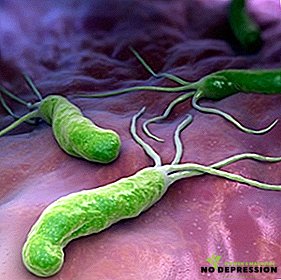 Many cases have been provoked by the bacterium Helicobacter pylori, which feels great on the gastric mucosa in many people, because it is resistant to acid. In this case, the bacterium "successfully" multiplies, destroying the gastric mucosa, it releases substances that cause small erosion, which eventually become ulcers;
Many cases have been provoked by the bacterium Helicobacter pylori, which feels great on the gastric mucosa in many people, because it is resistant to acid. In this case, the bacterium "successfully" multiplies, destroying the gastric mucosa, it releases substances that cause small erosion, which eventually become ulcers;- The most common causes of the disease: our stomach has a mucous surface, which normally should protect it from gastric juice. If its quantity increases or mucus becomes smaller, ulcers appear;
- There is also a genetic predisposition to the development of the disease, but the development of such a scenario is not always the place to be. Still, external factors, such as smoking, regular use of certain drugs, and alcohol, are of great importance. Stress and spicy foods do not cause ulcers, but they can exacerbate the symptoms;
- Long-term use of medicines, such as aspirin, ibuprofen, naproxen.
Signs of gastric ulcer
Frequent symptoms:
- burning pain in the stomach and upper abdomen. It stops after taking medicines (antacids), neutralizing acid and milk. Significantly reduced pain after vomiting;
- feeling that the stomach is full;
- heartburn and belching;
- nausea first, then vomiting.

Severe symptoms:
- the complication of the disease is expressed by intense growing pain;
- vomiting may be blood;
- blood may be present in the urine;
- black color of feces;
- girdle pain resulting from the penetration of an ulcer into other organs;
- rotten smell when belching;
- general weakness;
- labored breathing;
- weight loss for no apparent reason.
What can be complications
If you refuse treatment, erosion on the gastric mucosa can lead to serious complications:
- Internal bleeding. It may appear as a chronic form, in which there is a slow blood loss and anemia or an acute form that already requires hospitalization and blood transfusion. This type of bleeding leads to vomiting of blood and the appearance of black feces;
- Ulcers can be penetrating, which greatly increases the possibility of infection and peritonitis;
- Ulcers can cause swelling, inflammation and scarring of the tissues, and as a result, block the passage of food through the digestive tract (gastrointestinal tract). With such disturbances, food is quickly saturated, followed by vomiting. Therefore, the weight in patients is significantly reduced.

Diagnosis of the disease
At the slightest suspicion of a peptic ulcer of the stomach, one must immediately undergo the following diagnosis:
- Pass feces for analysis, to determine the hidden blood;
- To conduct mandatory gastroscopy;
- Check for the presence of Helicobacter pylori bacteria in the stomach for carbon dough.
The doctor at the first examination talks with the patient to find out the picture of the symptoms. Then assigns a diagnostic test:
- Laboratory tests for the presence of pylori in the stomach. This may be a blood test, stool test or breath test. The latter is the most accurate. When conducting it, the patient is offered to drink or eat something containing a radioactive carbon compound. Bacteria destroy this substance in the stomach, the patient is asked to exhale into the prepared bag, then it is sealed. If the patient is infected, his sample will show the content of radioactive carbon, or rather carbon dioxide;
- Endoscopic examinations are carried out with a special device that is used to check the gastric mucosa. During the examination, the doctor inserts a tube into the stomach, inside which the chamber is located. With the help of this device, the doctor will be able to detect existing erosion. After that, a biopsy can be additionally prescribed to help detect the presence of pylori bacteria in the stomach. Usually, endoscopy is recommended for elderly patients with signs of internal bleeding, weight loss, with impaired swallowing and assimilation of food. If this type of examination reveals an ulcer, then after a course of drug treatment, repeat endoscopy is carried out to evaluate the treatment, even if all the symptoms of the disease are absent;
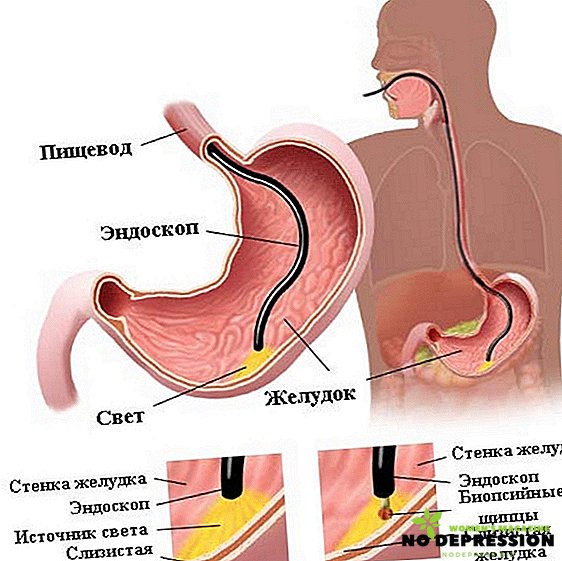
- Contrast radiography, consisting of a series of X-rays of the upper GI tract (gastrointestinal tract). During the study, the patient must drink a special liquid that will cover the entire gastrointestinal tract, which will allow you to accurately detect defects in the gastric mucosa.
Drug treatment
Modern medicine has in its arsenal certain schemes for the treatment of gastric ulcers. They contain antibiotics, drugs that neutralize the acid, as well as drugs that form protection on the surface of the stomach.
Two times a year, patients are recommended to visit a gastroenterologist.
The scheme of drug treatment includes:
- Antibiotics. With their help, N. rulori is destroyed. If the results of studies confirm the presence of these bacteria in the stomach, the doctor will prescribe a complex of antibacterial agents. It may be amoxicillin, levofloxacin, clarithromycin, tetracycline, metronidazole and tinidazole. The usual period of taking the drugs is 14 days. Along with antibiotics, acidity reducing drugs are prescribed - IPP (proton pump inhibitors), as well as bismuth preparations;
- Drugs that block the production of hydrochloric acid. PPIs reduce the production of hydrochloric acid by blocking the cells that produce this acid. This group of drugs include: pantoprazole, omeprazole, esomeprazole and lansoprazole. Long-term use of PPI, especially at high dosages, can lead to fractures of the spine, wrist bones and hips. Ask your doctor if calcium drugs can reduce the possible risks of fractures;
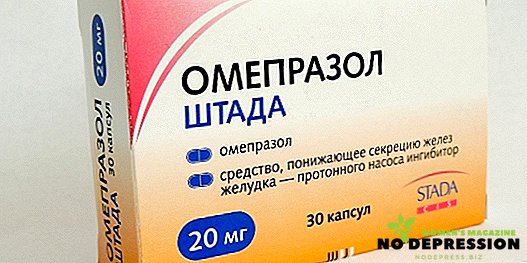
- Medications that reduce the production of gastric juice. They are also called H-2 blockers, the drugs of this line reduce the production of hydrochloric acid released into the stomach. These are available remedies: nizatidine, ranitidine, cimetidine and famotidine;
- Antacids to neutralize hydrochloric acid. They are prescribed to quickly relieve pain. Side effects depend on the basic composition of the active substances, so there may be constipation and diarrhea. Antacids relieve pain well, but are not used for the treatment of peptic ulcer;
- Medicines that protect the gastric mucosa. In some cases, appointed agents that are called cytoprotectors. they protect the surface of the stomach. This may be: misoprostol or sucralfate.
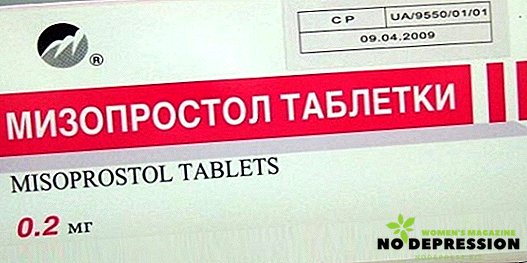
Treatment of gastric ulcer folk remedies
An important clarification: to cure gastric ulcer with the help of only folk remedies is impossible. Famous plants that are recommended for the treatment of this disease - cabbage, turmeric, mastic, licorice root, flax, mother and stepmother are recommended for use as additional funds, and it is not necessary to rely on the fact that they will cure the ulcer.
 Patients suffering from gastric ulcer, doctors prescribe appropriate medications that neutralize the excess hydrochloric acid in the stomach and protect the surface from damage.
Patients suffering from gastric ulcer, doctors prescribe appropriate medications that neutralize the excess hydrochloric acid in the stomach and protect the surface from damage.
In addition to these drugs, you can use medicinal plants, such as flax seeds. The mucus contained in this plant has enveloping properties, and under the influence of acid, its healing properties even increase.
For the preparation of a therapeutic solution, do not crush the seeds, otherwise the proteins and fatty oil that is in the seed will not allow the mucus to stand out in full. So, to obtain a therapeutic extract: pour boiling water over the seeds, close the container, shake it vigorously for about fifteen minutes. Filter the resulting medication and take warm.
Coltsfoot leaves must be dried. For infusion, chop the leaves, pour in hot water in an enamel container. One tablespoon of raw materials will need 200 ml of boiling water. Put in a water bath for 15 minutes. Cool, then strain, squeeze the leaves. Take 30 minutes. before meals.
 Effective remedy - fresh cabbage juice. Take it in the form of heat 200 to 400 ml from 2 to 3 times a day for 60 minutes. before meals. Salt it is not necessary, otherwise it will not benefit.
Effective remedy - fresh cabbage juice. Take it in the form of heat 200 to 400 ml from 2 to 3 times a day for 60 minutes. before meals. Salt it is not necessary, otherwise it will not benefit.
To make the treatment tasty and pleasant, the cabbage juice can be mixed with other vegetable juices. For example, you can take cucumber, beet and carrot.
Taking this mixture every day, you provide a great benefit to your stomach.
Diet for stomach ulcers
Medications are, of course, stopping the disease, but they do not end the treatment. Patients with peptic ulcer disease recommended diet and nutrition for the regime.
To improve health, one should take care to have a variety of cereals, noodles, stewed or boiled meat, mashed potatoes or boiled vegetables in the diet. You can not eat spicy, spicy and fatty foods, as well as drink strong coffee, tea, alcoholic beverages.
Exacerbation of gastric ulcers: symptoms and treatment
Unfortunately, many patients are too patient. And in the case of peptic ulcer it is very dangerous. Active treatment of the disease at the onset of the exacerbation will take 14 days, and during ulcer perforation (a through hole in the stomach), surgical intervention is indicated, followed by a long-term recovery and a lifelong dietary restriction.

Symptoms arising from acute ulcers:
- immediately after eating, pain arises, the attack weakens, then begins again;
- sour belching;
- three hours after eating heartburn.
With a strong attack of gastric ulcer urgently call a doctor. And in order to "live" before his arrival, drink a glass of milk, adding a pinch of soda.
Preventive measures
- Eat slowly. Slow consumption of food contributes to saturation, but in small amounts. The more carefully you chew food, the better it is absorbed;
- Strict observance of the daily regimen: do not skip meals, do not compensate for the skipped meals, are absolutely incompatible with normal digestion: hunger and overeating;
- Give preference to dishes and culinary processing that you like and make you feel satisfied;
- Moderately consume alcoholic beverages, give up completely from cigarettes;
- Sleep more;
- Do not eat before bedtime;
- Take painkillers with food.
Be healthy!
For more information about how to treat stomach ulcers, see the following video.


 Many cases have been provoked by the bacterium Helicobacter pylori, which feels great on the gastric mucosa in many people, because it is resistant to acid. In this case, the bacterium "successfully" multiplies, destroying the gastric mucosa, it releases substances that cause small erosion, which eventually become ulcers;
Many cases have been provoked by the bacterium Helicobacter pylori, which feels great on the gastric mucosa in many people, because it is resistant to acid. In this case, the bacterium "successfully" multiplies, destroying the gastric mucosa, it releases substances that cause small erosion, which eventually become ulcers;


